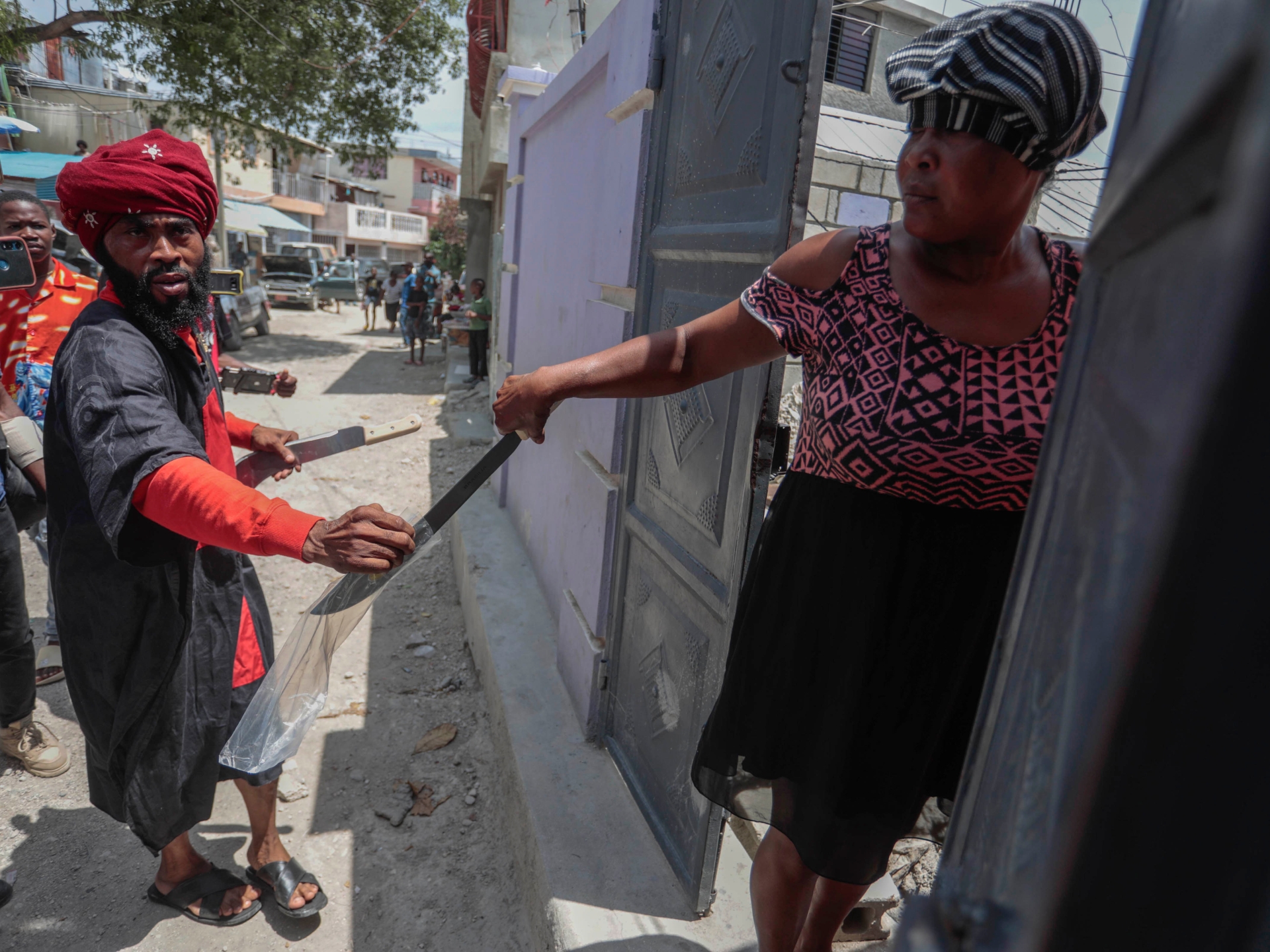Haitians are “taking the law into their own hands” with a wave of vigilantism that risks worsening the country’s already skyrocketing levels of violence, a United Nations official has warned.
Ravina Shamdasani, a spokesperson for the UN High Commissioner for Human Rights, said that suspected Haitian gang members have been killed and lynched in the streets amid the recent rise of “vigilante justice”.
“We’re seeing a cycle of violence that’s showing no sign of ending,” Shamdasani said in an interview with Al Jazeera this week. “It’s incredibly worrying.”
“People are living in a nightmarish scenario and there’s very little hope, so they’re taking the law into their own hands, which of course is not going to help long term.”
Shamdasani added that nearly 1,500 gang-related killings were reported between January 1 and the end of April, with 49 more taking place between May 10 and 15 alone. “This is a situation that’s akin to an armed conflict situation,” she said.
Widespread gang violence has plagued Haiti for nearly two years, as armed groups vie for control after the July 2021 assassination of President Jovenel Moise, which created a power vacuum.
Haiti’s de facto leader, Prime Minister Ariel Henry, whom Moise chose for the post just days before he was killed, has faced a crisis of legitimacy — and attempts to chart a political transition for Haiti have failed as well.
The violence has impeded access to healthcare facilities, forced the closure of schools and clinics, and worsened already dire food insecurity by cutting residents of gang-controlled areas off from critical supplies.
The United Nations Children’s Fund (UNICEF) warned this month that more than 115,600 Haitian children in 2023 were expected to suffer from “severe acute malnutrition”, also known as “severe wasting”, as a result of the instability.
Police under-equipped
The Haitian National Police have pledged to combat the gangs, saying in a statement posted to Facebook on Tuesday that the force “does not intend to give up and renews its pledge to continue to protect lives and property of the population”.
But observers have said the Haitian police are ill-equipped and understaffed and cannot adequately respond to the crisis.
“The Haitian police is not managing the situation well,” the UN’s Shamdasani said. “They cannot manage this on their own, and the people realise this, which is why they’re taking the law into their own hands.”
In recent weeks, a vigilante movement called Bwa Kale — “peeled wood” in Haitian Creole — has emerged, with Haitians arming themselves with sticks, machetes and other weapons to go after the gangs.
In late April, residents in the capital Port-au-Prince lynched suspected gang members and set their bodies on fire. Images shared online and by news agencies showed a crowd of people standing near a pile of burned human remains in a street.
The Bwa Kale movement is “a vaccination campaign against gang violence”, Jean Baptist Kenley, a social leader in the Port-au-Prince area of Solino, recently told Al Jazeera. “The Bwa Kale will continue to eradicate the kidnapping violence in the country.”

‘Short-term solution’
Garry Pierre-Pierre, a Haitian-American journalist and founder of The Haitian Times, recently told NPR that the Haitian population has also “enlisted the police” to help in efforts to stop gang violence.
In some cases, Pierre-Pierre explained, community members will identify gang members and take law enforcement officers directly to them to make arrests.
“It’s not totally the population taking things into their own hands,” Pierre-Pierre said. “It’s not totally like vigilante[s]. It’s working hand-in-glove with the police … to give the police now the upper hand as they fight these gangs.”
Vigilantism “is not the answer” to Haiti’s problems, Pierre-Pierre also wrote recently.
“It is a short-term solution the police must take a hold of immediately, to seize the advantage it affords to rid Port-au-Prince of this menace that has brought the capital city, and by extension the country, to its knees over the last two years,” he said.
“The police can continue their operations alongside the people to credibly identify alleged gang members. These suspects should be treated as innocent until proven guilty, facing the fullest extent of the law — as feeble as Haiti’s justice system may be right now.”
Meanwhile, the UN continues to urge the international community to launch a multilateral mission to help Haiti respond to the violence.
UN Secretary-General Antonio Guterres, who discussed the situation in Haiti during a meeting with Jamaican Prime Minister Andrew Holness in Kingston this week, said the crisis requires “a much stronger commitment by the international community”.
If you want to know more about what is happening in Haiti. Watch the special program on Al Jazeera’s Inside Story. https://t.co/ubhpArvorD
You will hear things like 👇🏼#Haiti— Teresa Bo (@TeresaBo) May 14, 2023
Henry, Haiti’s de facto leader, made a request for a “specialised armed force” last October, but no country has agreed to lead such a mission and the effort has since stalled.
“It has been difficult to mobilise the will of those who have the best capacity to lead this operation,” Guterres said during a news conference in Jamaica on Monday.
“And it has been difficult to create also the political conditions to make it easier for different countries to accept to be part of this action.”
Many Haitian civil society leaders have rejected the prospect of international intervention, however, saying history has demonstrated that foreign forces bring “more problems than solutions” to the country.
Instead, they have urged foreign nations to provide more support to the Haitian police, stem the flow of weapons to Haiti — particularly those coming from the United States — and sanction officials and others profiting off the violence.
Sumber: www.aljazeera.com
 Skip to content
Skip to content


